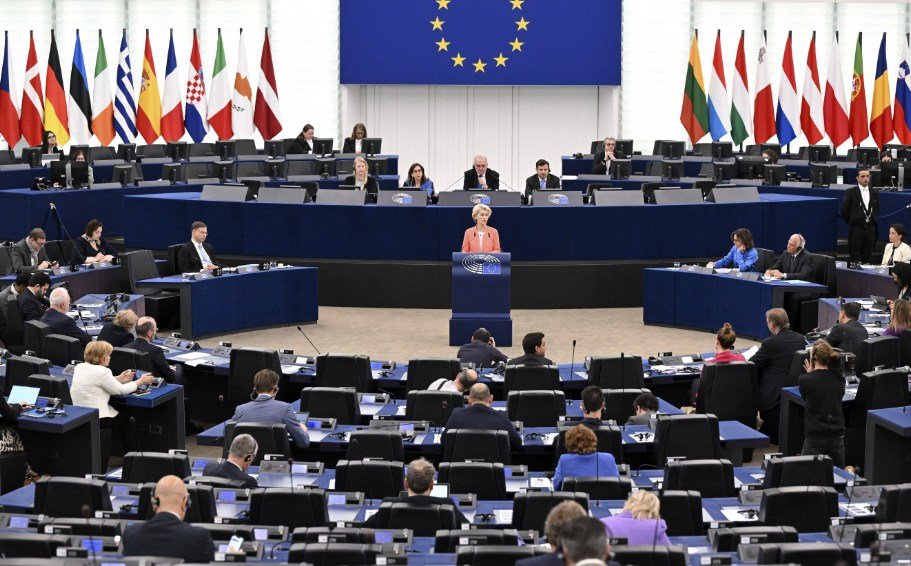The European Union has announced a new strategy to protect its critical technology from potential threats, especially from China. The strategy aims to impose export controls on sensitive technology, fortify supply chains, and guard against economic coercion.
EU seeks to limit China’s access to sensitive technology
The EU will publish a list of critical technologies that it believes Europe must not make easily available to countries where Brussels fears they could harm the bloc’s security, EU interests or human rights. The list could include quantum computing, advanced semiconductors and artificial intelligence.
The European Commission President Ursula von der Leyen said that the EU was looking at a “limited, small set of cutting-edge technologies”, adding: “Here we want to make sure they do not enhance the military capabilities of some countries of concern.”
The EU is also working on a proposal on outbound investment that could restrict overseas funding by European companies. This is part of a strategy of “de-risking” but not “decoupling” from China, as von der Leyen has repeatedly emphasised the need for Europe to produce more on the continent and work with friendlier nations to ensure “economic security”.
EU adopts mechanism to counter economic coercion
The European Parliament is set to give its final green light on Tuesday to a mechanism that would allow the bloc to impose tariffs, restrict investment, and limit access to public contracts for nations seen as engaging in economic blackmail. The mechanism is a response to a dispute with China over trade restrictions imposed on EU member Lithuania after it strengthened ties with Taiwan.
The mechanism would enable the EU to take collective action against third countries that use trade or investment measures to pressure one or more member states. The EU hopes that this will deter countries like China from using their economic leverage to influence EU policies.
EU-China relations under strain
The EU’s move to protect its critical technology and counter economic coercion comes amid strained relations with China over various issues, such as human rights, trade, and security. The EU has imposed sanctions on Chinese officials over alleged abuses in Xinjiang and Hong Kong, while China has retaliated with its own sanctions on EU politicians and entities.
The EU has also suspended the ratification of a comprehensive investment agreement with China, which was signed in December 2020 after seven years of negotiations. The deal was meant to improve market access and level the playing field for European investors in China, but faced criticism from human rights groups and some member states.
The EU says it seeks to maintain dialogue with Beijing, but also wants to assert its strategic autonomy and values. The trade commissioner Valdis Dombrovskis visited China last month to discuss trade and investment issues, but also raised concerns over the situation in Hong Kong and Xinjiang.

